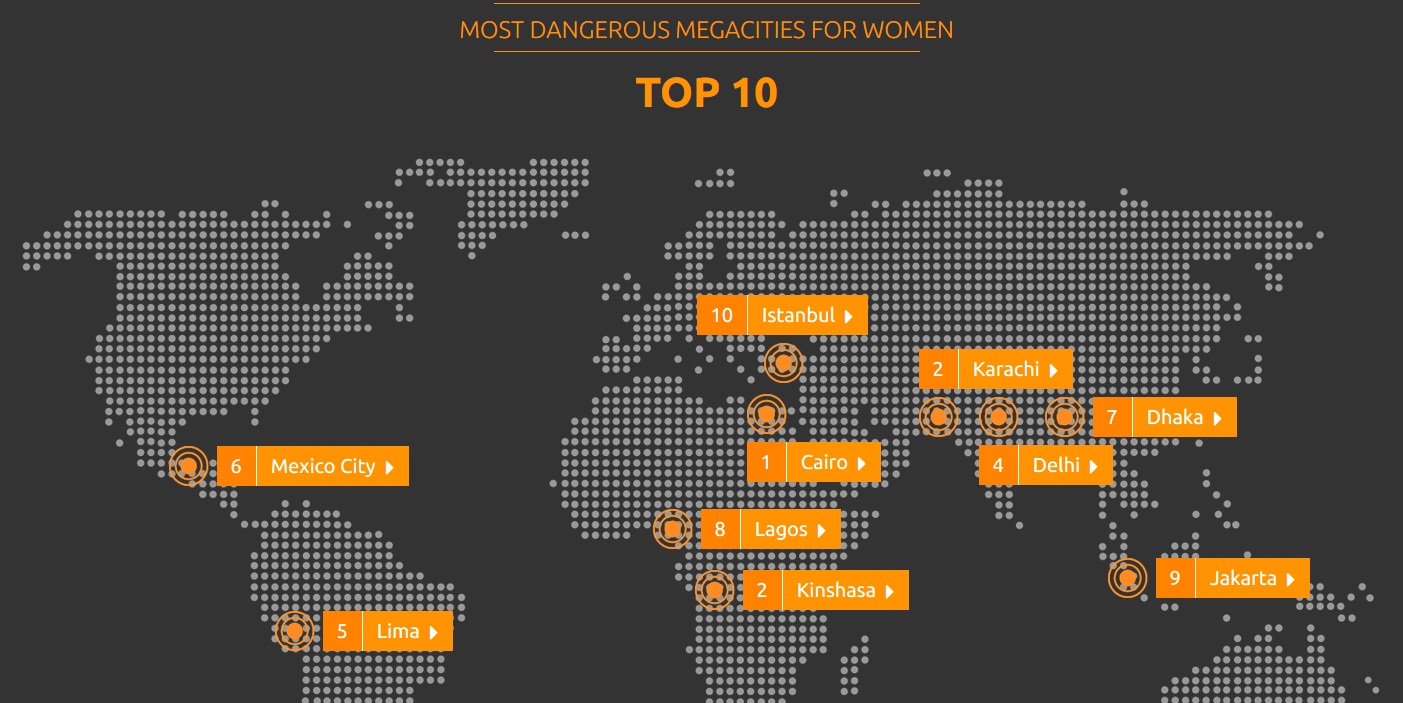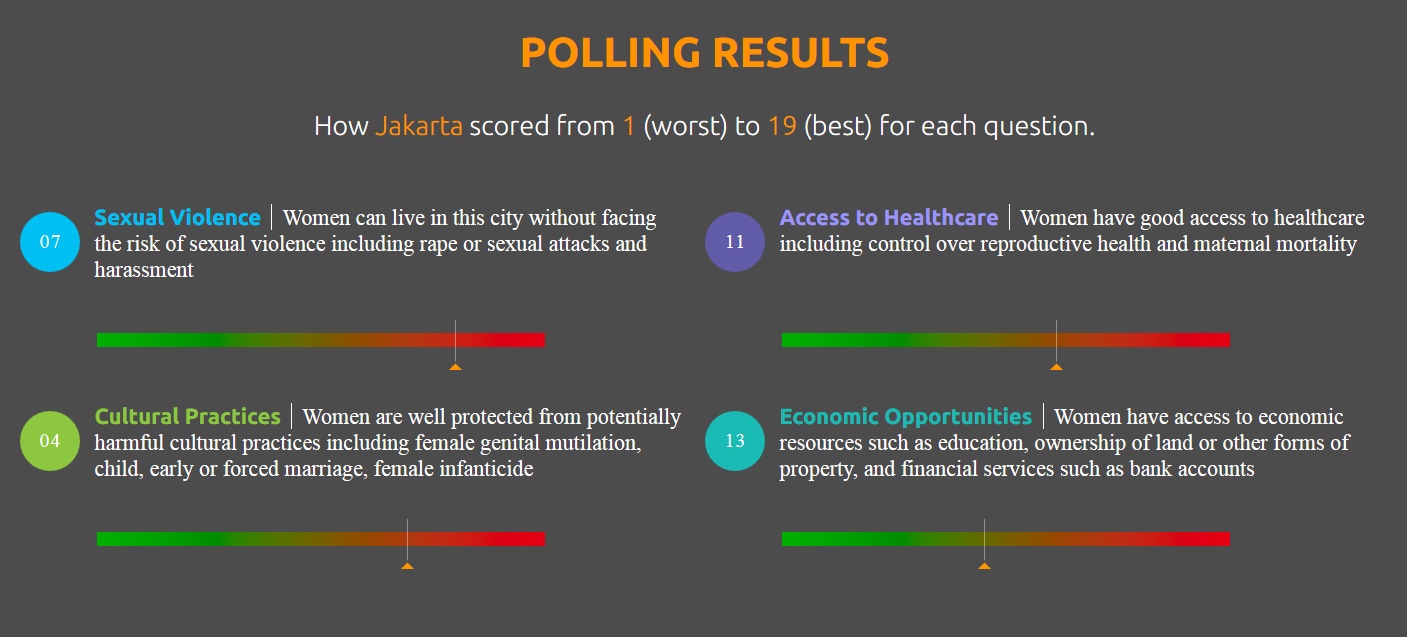Jakarta ranked as the 9th most dangerous megacity for women in The World’s Most Dangerous Megacities for Women 2017 poll, conducted by the Thomas Reuters Foundation.
The survey was conducted in 19 of the world’s biggest megacities as ranked by the United Nations. It was set out to find out which of these cities are safe for women, and which need to do more to ensure women are not at risk of sexual violence and harassment and harmful cultural practices and have access to healthcare, finance, and education.

In those 19 megacities, Thomas Reuters Foundation contacted 20 experts focused on women’s issues including academics, non-government organization workers, healthcare staff, policy-makers, and social commentators.
The results

The questions asked in the survey covered four areas: sexual violence, access to healthcare, cultural practices, and economic opportunities. In this survey, Jakarta scored from 1 (worst) to 19 (best) for each question.
Jakarta’s lowest position was in the cultural practices area, which determines whether “women are well protected from potentially harmful cultural practices including female genital mutilation, child, early or forced marriage, and female infanticide.” The female genital mutilation (known as “sunat”) in Indonesia is still widely practiced as a part of religious practices. Early or forced marriage is also common in the city especially among those who are financially challenged. For this category, the experts ranked Jakarta #4 out of 19, with only Dhaka (#3), Karachi (#2) and Cairo (#1) scoring worse.
Jakarta was also in the bottom half of cities in terms of whether “women can live in this city without facing the risk of sexual violence including rape or sexual attacks and harassment”, earning the rank of #7 out of 19.
Catcalling is probably one of the most common harassment happens to women in Jakarta. There are also many cases of sexual harassment in public transportation have been documented for the past few years. Walking alone or taking public transportation at night is not recommended for women, especially if they are new to the city. A 2014 survey Thomson Reuters ranked Jakarta 5th out of 15 cities in terms of how unsafe women felt while using public transport.
Jakarta ranked #11 out of 19 in the area of access to healthcare, meaning that women in Jakarta have good access to healthcare including control over reproductive health and maternal mortality on average. Women also have access to economic resources such as education, ownership of land or other forms of property, and financial services such as bank accounts—making Jakarta ranked #13 in the area of economic opportunities. Although both ranks are better than the previous two areas, Jakarta still ended up in the bottom half of the survey: #9 out of 19 overall.
According to the poll’s ranking, the most dangerous megacities for women overall are Delhi (#4), Kinshasa and Karachi (#2) and Cairo (#1). The cities ranked safest on the list are Paris (#17), Tokyo (#18) and London (#19).
Read the full findings and methodology here.
So, in your opinion, is Jakarta actually safe for women?




